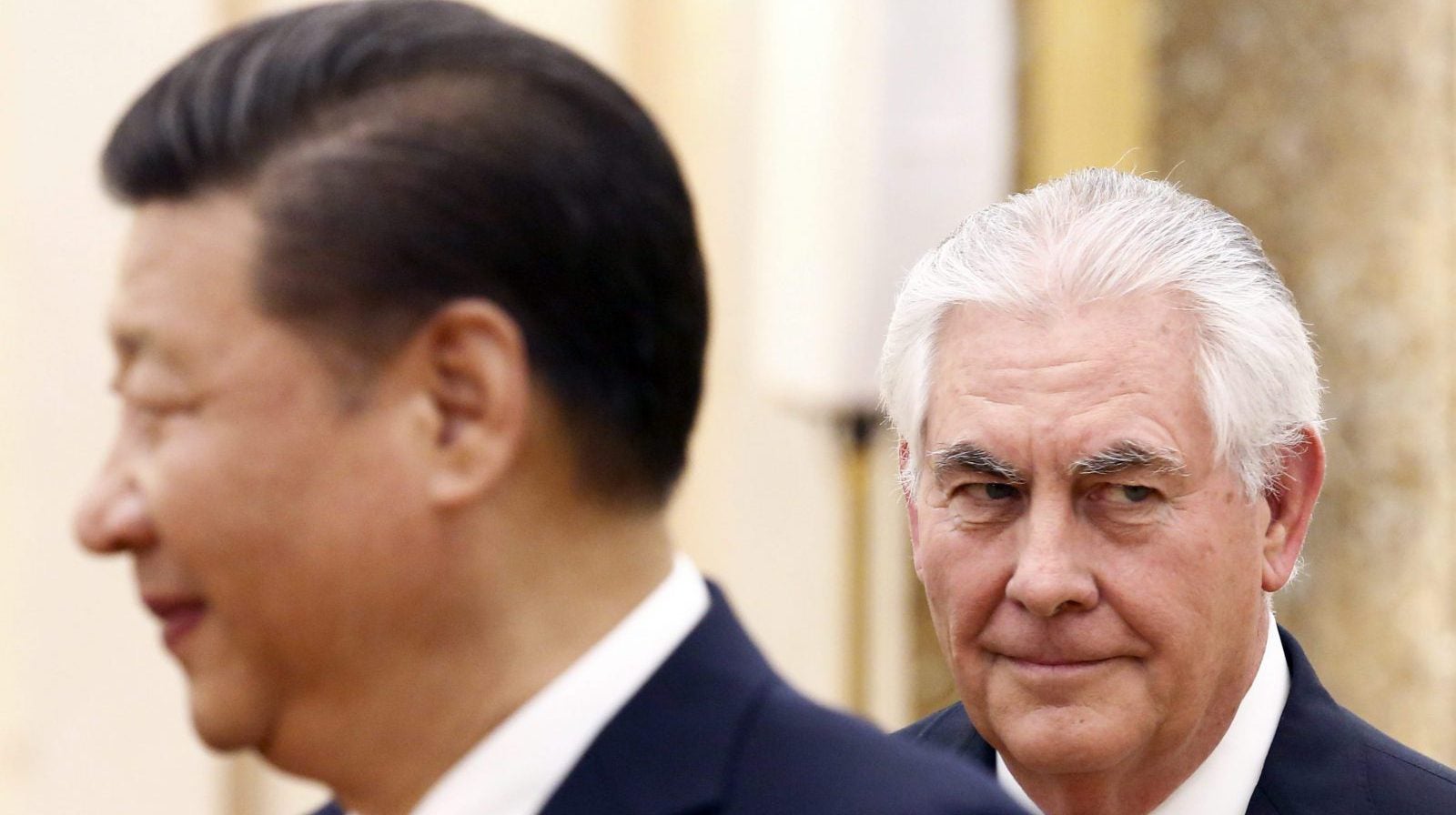Tillerson will skip the next NATO meeting but visit later with Putin
In a fresh sign of the Trump administration’s cold shoulder toward its traditional allies, Rex Tillerson, the US secretary of state, will skip the next meeting of NATO foreign ministers, but will visit with Chinese leader Xi Jinping and later with Russian president Vladimir Putin.


In a fresh sign of the Trump administration’s cold shoulder toward its traditional allies, Rex Tillerson, the US secretary of state, will skip the next meeting of NATO foreign ministers, but will visit with Chinese leader Xi Jinping and later with Russian president Vladimir Putin.
In an exclusive story, quoting what it said were four current and former US officials, Reuters reported that Tillerson will not attend the NATO meeting April 5-6 in Brussels. Instead, he will join US president Donald Trump in Florida for Xi’s visit to Trump’s Mar-a-Lago resort—Tillerson, the former ExxonMobil CEO, met with the Chinese leader just yesterday (March 19) in Beijing—and will go on to Moscow on April 12, presumably to meet with Putin.
The State Department has confirmed that Tillerson will go to Russia in April after meeting with the G7 in Italy. While Tillerson will meet with NATO foreign ministers in Washington on March 22 as part of the “Coalition to Defeat ISIS,” a State Department spokeswoman said that Tom Shannon, a holdover undersecretary from the Obama administration, will represent the US at the April NATO meeting in Brussels.
The news is likely to create a new bout of consternation in Washington, where members of the US Congress and old establishment hands have expressed deep concern with Trump’s roughing up of US allies in Europe, and his amiability with Putin.
During his campaign, Trump routinely disparaged NATO, suggesting its members were a bunch of freeloaders gaining off of the US budget, and he praised Putin as a strong leader who deserved to be admired. As president, Trump has continued to worry European leaders who have been America’s closest allies going back a century.
Most recently, in a March 18 visit with German chancellor Angela Merkel in Washington, Trump was distant, at one point appearing to refuse to shake her hand during a photo op. In two tweets following her departure, Trump astonishingly upbraided her with the nonsensical claim that Germany owes the US money for its military presence on German soil.
The optics of the news about Tillerson, too, are stunning, even against the cascade of extraordinary events in the early Trump administration. ”If true, secretary Tillerson’s decision to skip his first NATO ministerial summit sends a terrible signal to our allies about Trump foreign policy priorities,” Michael McFaul, the former US ambassador to Russia in the Obama administration, told Quartz via email.
Andrew Kuchins, a senior fellow at Georgetown University’s Center for Eurasian, Russian and East European Studies, said there was not necessarily anything wrong with Tillerson’s reported travel plans.
“I don’t see a problem here. Relations with China and Russia are two of our biggest challenges, and the chance of something significant happening at a NATO foreign ministerial meeting is close to zero,” Kuchins said. “The Trump administration has been clear they will not play by the old rule book. Let’s give them a chance to show it can work before setting our hair on fire.”